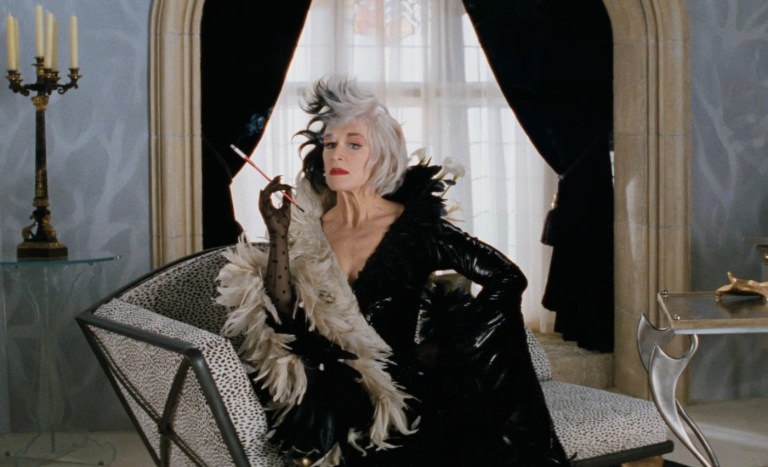
Never Ask An INFJ To Do These 5 Things
The INFJ (standing for Introversion (I), Intuition (N), Feeling (F), Judgment (J)) is the rarest Myers-Briggs personality type, making up 1-2% of the population.They have a “darker” side that allows them to harness their traits powerfully to seek justice. Here are five things you must never ask an INFJ to do.
The INFJ, standing for Introversion (I), Intuition (N), Feeling (F), Judgment (J), is the rarest Myers-Briggs personality type, making up 1-2% of the population. Known as “The Counselor,” INFJs are known for being empathic, passionate, and intuitive changemakers and are often powerful forces for positive social change. Yet INFJs also have a “darker” side that allows them to harness their traits to seek justice. Here are five things you must never ask an INFJ to do:
Obey authority no matter what.
These seemingly diplomatic and demure personality types have a ferocious undercurrent when it comes to challenging social norms or a status quo that oppresses others, especially the most vulnerable. They are known not just as “The Counselor” but also “The Protector,” and for good reason. Built into every INFJ is a keen bullshit detector that enables them to understand the complexity of every situation including the fact that someone’s role as an authority figure, position of power, or social status should not allow them to violate the rights of others without empathy and compassion. That is why INFJs tend to be the harbingers of social movements that fight for the underdogs and the most vulnerable. That is also why they often become accidental yet effective leaders without trying to be. They are also fierce defenders of their loved ones and their core values, speaking up and standing up for what is right – even if it isn’t popular. And ironically, standing up for what is right is what ultimately makes them so popular and well-loved. They are willing to make sacrifices for the greater good and they don’t care as much about their reputation or how they look to others as the average person in the process. For them, it is better to stand up for what they believe in than it is to gain the approval of others.
Accept your lies or claims at face value. Not speak the truth.
Paradoxically, INFJs can be a target for many toxic types such as narcissists or psychopaths even though they are quite intuitive about the hidden motives of others. Many INFJs are also “highly sensitive people” (HSPs) which means neurologically they have a greater depth of processing, awareness, empathy and are in touch with cues in their environment in ways others are not. Yet due to their sensitivity, they’ve been gaslit to believe their perceptions and beliefs about others need to be continuously reevaluated even when they are usually on point. As a result, they learn to doubt themselves even though many of their “premonitions” come to life. It’s common for people to come back to the INFJ after some time to confirm that they were right all along about certain toxic people or situations. Due to their discernment, an INFJ in their power will not accept someone’s claims at face value. They will investigate and seek to find the truth. Oftentimes, they will accurately understand and identify from their own intuition who is sinister and who is well-intentioned. That is why they tend to be scapegoated and persecuted by manipulators who want to silence them. They tend to be the “whistleblowers” that expose actions that harm others.
Shrink themselves for your comfort.
INFJs are multifaceted complex personalities who can hold many seemingly contradictory characteristics. Yet this is what makes them such fascinating individuals. Asking them to shrink or box themselves into one category is asking them to erase what makes them who they are. They are multilayered and are often naturally gifted in areas of creativity, writing, arts, and science. They can contribute to the world in diverse, meaningful, and unique ways and usually have varied interests and pursuits where they can utilize their gifts. They can be both scholarly and sassy, feisty and innocent, humorous and serious, scientific and spiritual – all at the same time. Knowing an INFJ means accepting that you may never really “know” them and that they’re always unraveling layer by layer, even to themselves. Yet despite their contradictions, they act with integrity and compassion for others; they are not duplicitous even though they are versatile, can play many roles, and put on many hats. This is what makes them one of a kind. INFJs don’t need to imitate or mimic other people in order to be interesting: they are the “originals” and others often seek to mimic them in an attempt to tap into what makes them special.
Not hold you accountable.
If you’re hoping an INFJ won’t hold you accountable for shady behavior or speak against injustice, good luck. These types “fool” everyone with their genuinely warm demeanor but they are not to be underestimated. Even the most skilled of narcissists and psychopaths are prone to running away with their tail between their legs when an INFJ arrives fully empowered and integrated within both their light and “dark” sides. That’s because the INFJ has just as strong of a capacity as any of these manipulators for a deep understanding of human nature. They can readily spot the fears, emotions, insecurities, complexities, contradictions, needs, and desires of other people. The difference is, they usually use these abilities and knowledge to help humanity rather than harm it. This is why INFJs are often capable of the harshest comebacks to manipulators and bullies and staging the most unexpected comebacks. They rise even more victorious than ever after seeming setbacks, much to the shock of naysayers who doubted them. When it comes to taking down predators, the INFJ is willing to do what it takes to ensure justice comes to fruition – and they can be quite fierce when doing so.
Not analyze you or not see patterns.
INFJs tend to be hyper-attuned and detail-oriented to what is beneath the surface of even the most surface-level interactions. They often use these abilities to be immensely professionally and personally successful in the realms of business and academia, entering fields where they can make the most of these assets to help others succeed. They can identify the callousness and contempt beneath a seemingly charming exterior. They are adept at deciphering what someone isn’t saying from tone of voice, gestures, and microexpressions, even if they’re explicitly saying the opposite. Perhaps that is why so many people comment on what is known as the “INFJ Stare,” a stare that seems to penetrate right through them. The INFJ doesn’t always know they are doing this: analyzing others and the patterns in their environment comes automatically to them. It is second nature, especially if they were raised in dangerous environments as children where they had to be vigilant to micro-signals of threat to survive. INFJs see patterns in unique ways, catching on quickly to the behavioral patterns of people around them, which makes them wonderful lie detectors and often the first in the tribe to sense danger ahead: they just need to learn to trust themselves.
That is why it’s wise not to ask them to “not bring up the past” or not predict the future: they can recognize incoming signals that identify what will happen next. It isn’t always the case that people who “get along with everyone” do so because they’re friendly and amazing people. Sometimes it’s because those people are either unable to see or subconsciously refuse to see red flags in other people – and are accepting and enabling even of people who are toxic and harmful. These enablers put others in harm’s way and do not take action. INFJs do the opposite: they usually call out or identify inauthentic people even if those people rank highly in their social and professional circles or present a convincing facade. They put a spotlight on the warning signs that could threaten the safety and well-being of others. That is why they cannot stand surrounding themselves with people who are unethical and willing to betray others to get ahead or those who are willing to silence others speaking the truth because they know the harm it ultimately causes everyone. INFJs may be in the minority, but they strive to embody the good they wish to see in the world. This is what makes them powerful leaders and changemakers.











